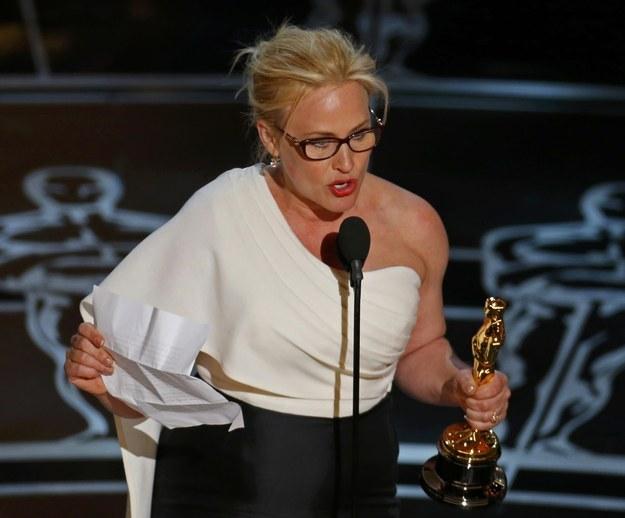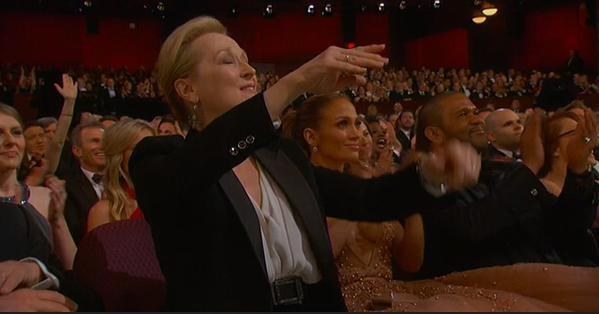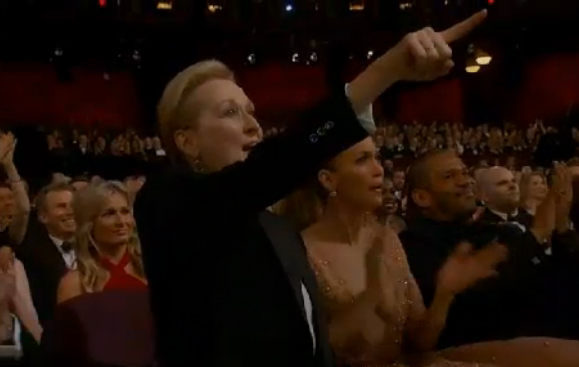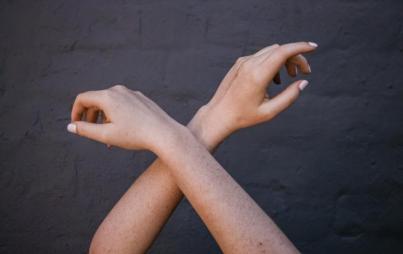
After Patricia Arquette gave her rousing speech about wage equality for women at the Oscars last night, my friend turned to me and said, "Now that was a mic drop."
And indeed it was. Arquette's words were stirring, impassioned, and oh-so-needed:
“To every woman who gave birth to every taxpayer and citizen of this nation: We have fought for everybody else’s equal rights. It’s our time to have wage equality once and for all and to fight for equal rights for women in America."
When you get Meryl Streep this excited, you know you're doing something right.

Alas, the feminist high was not to last. After the awards, Patricia went to the backstage press room and changed the tenor of her argument. Suddenly, it was less about us, and more about us vs. them:
“So the truth is, even though we sort of feel like we have equal rights in America, right under the surface, there are huge issues that are applied that really do affect women. And it’s time for all the women in America and all the men that love women, and all the gay people, and all the people of color that we’ve all fought for to fight for us now.”
She has a point, of course—change comes when there is collaboration among disparate groups. Yet her words are predicated on a very divisive view of feminism: There are feminist women in one camp, gay people in another, and black people still another. So feminists are all straight, cis, white women? What about black women? And gay women? And that whole intersectional feminism thing?
As some astute tweeters put it:
We concur—this is not the way to frame feminism.
Right, Meryl?







